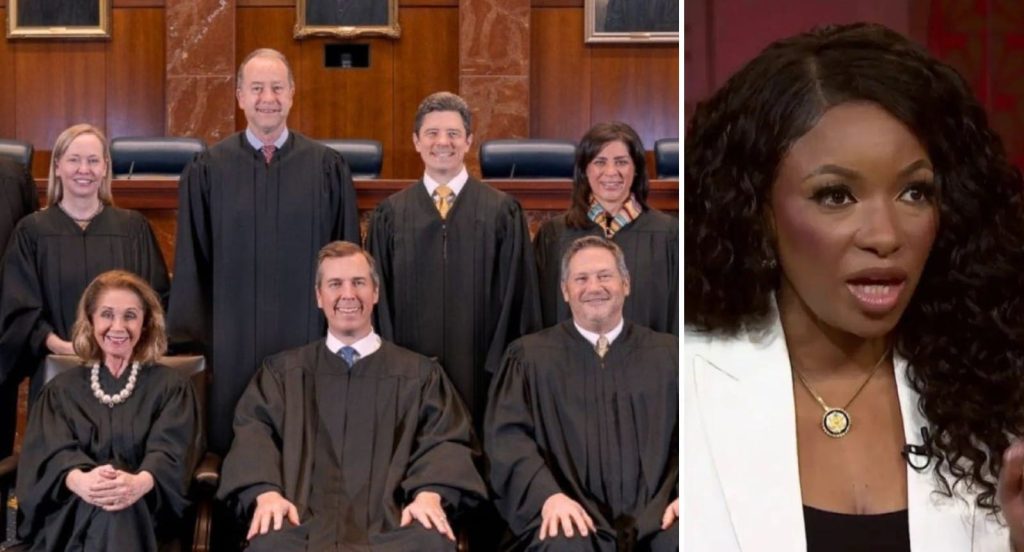
Austin, TX — The Texas Supreme Court is set to hear a high-profile case this week that could determine whether lawmakers can be removed from office for fleeing the state to block legislation. The case stems from a dramatic standoff earlier this summer when Texas House Democrats left the state to halt a Republican-backed congressional redistricting plan.
Democrats Fled to Block GOP Redistricting Plan
In early August, dozens of Texas House Democrats left the state to prevent a quorum in the Legislature, stalling a vote on a new congressional map designed to give Republicans five additional U.S. House seats.
Republicans, led by Governor Greg Abbott, argued the move violated lawmakers’ duties and launched a legal effort to remove those responsible.
Abbott later petitioned the Texas Supreme Court to remove Rep. Gene Wu (D-Houston), chair of the House Democratic Caucus, calling him the “ringleader of the derelict Democrats.”
“The briefing schedule brings the ringleader of the derelict Democrats closer to consequences,” Abbott wrote on social media following the court’s decision to hear the case.
Abbott and Paxton Unite in Legal Action
The court has consolidated Abbott’s lawsuit with a similar case brought by Attorney General Ken Paxton, who seeks to remove Wu and 12 other Democratic lawmakers.
Although Abbott and Paxton initially disagreed on which office had legal standing to file the suit, Paxton has since said he is “looking forward to working alongside” Abbott to hold Democrats accountable.
“We must ensure elected officials can’t abandon their posts to stop the people’s work,” Paxton stated.
Wu’s Defense: Acting for His Constituents
Rep. Wu’s attorneys argue that his departure from Texas was a political protest — not an abandonment of office.
They maintain that breaking quorum was a legitimate tactic to represent his constituents’ opposition to the GOP map.
“Rep. Wu has not died and has not been expelled from the House by the constitutionally prescribed means — a two-thirds vote,” his lawyers said in a legal brief. “His presence in another state is not a voluntary resignation.”
Wu’s team insists that the lawsuit is politically motivated and violates the separation of powers between the executive and legislative branches.
Political Pressure on the All-Republican Court
The Texas Supreme Court — composed entirely of Republican justices — faces scrutiny as it takes up the case. Two-thirds of its members were appointed by Governor Abbott, including the chief justice and another justice who both previously served as his general counsel.
“They don’t want to be in the position of potentially biting the hand that initially fed them,” said Andrew Cates, an Austin-based attorney and Texas ethics law expert, in an interview with The Texas Tribune.
Legal observers say the outcome could set a lasting precedent for how far political parties can go in using the courts to discipline or remove legislators.
Lawmakers Push New Penalties for Breaking Quorum
In response to the summer’s walkout, Texas Republicans are moving to prevent similar incidents in the future. On Monday, the Texas House passed House Bill 18, sponsored by Rep. Matt Shaheen (R-Plano), which would impose financial penalties on lawmakers who break quorum.
“Legislators have used quorum breaks to raise political funds,” Shaheen said. “That creates a financial incentive to obstruct the Legislature’s work.”
Under HB 18, lawmakers who flee during a quorum break would be prohibited from fundraising. The bill also imposes fines of up to $5,000 per donation accepted or made during the absence.
Lawmakers who remain in compliance — those who do not break quorum — would still be permitted to fundraise.
Constitutional Arguments Raised
During debate on the bill, State Rep. Richard Hayes (R-Hickory Creek) cited provisions in the Texas Constitution requiring lawmakers to attend both regular and special sessions. He argued that elected officials have a legal duty to be present and may be compelled to return if they refuse.
“The oath of office binds members to fulfill their responsibilities — including showing up,” Hayes said.
What Comes Next
The Texas Supreme Court heard oral arguments on Thursday, September 4, and is expected to issue a ruling in the coming weeks.
The decision could reshape how Texas — and potentially other states — handle legislative walkouts in the future.
Leave a Reply